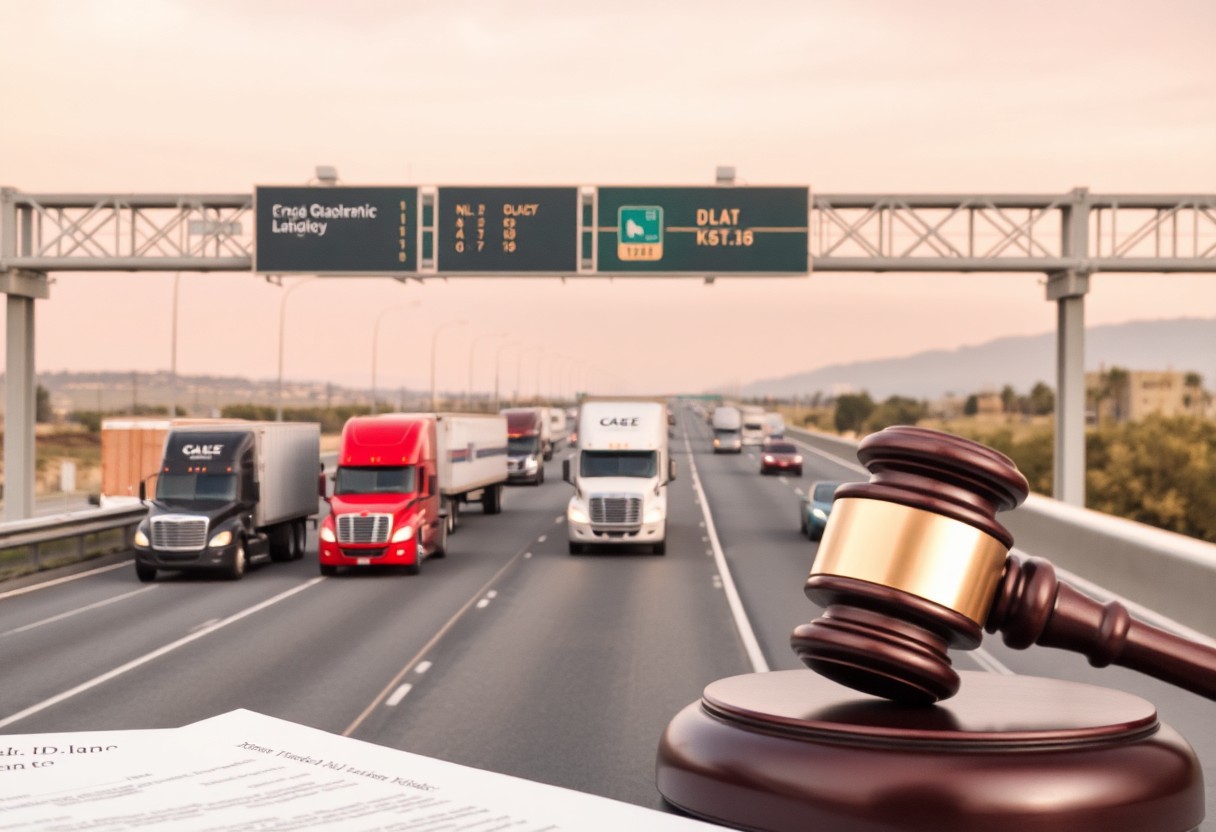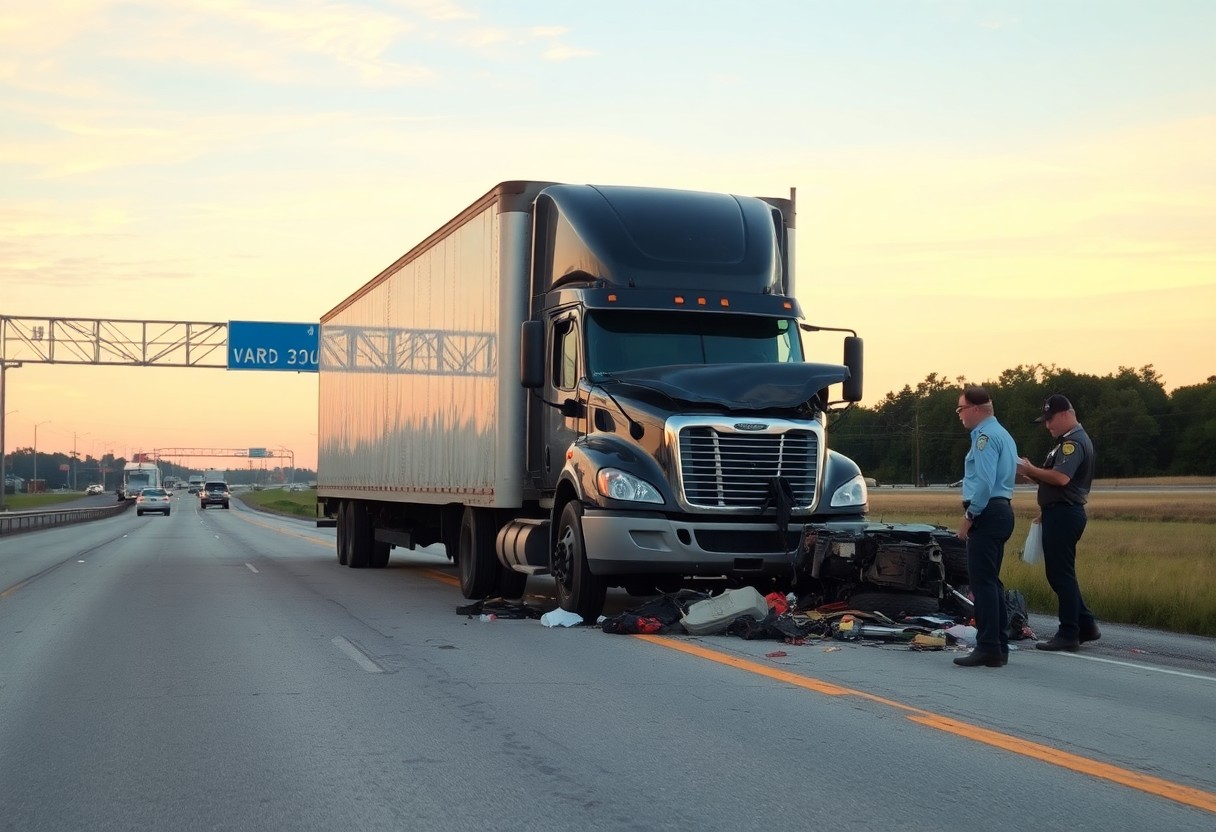Trucking companies often employ a range of strategic tactics to challenge your claims after an accident. If you’ve ever found yourself in a situation where you need to file a claim, it’s important for you to understand how these companies operate. By enlightening yourself on these manipulative strategies, you can better protect your interests and position yourself for the best possible outcome. In this article, we’ll uncover the hidden methods used by trucking companies to deny claims and what you can do to combat them.
Understanding the Claims Process
Before you can successfully navigate the complexities of a trucking accident claim, it is important to grasp the claims process itself. This begins with gathering evidence, documenting your injuries, and notifying the appropriate parties. Each step involves critical decision-making that could significantly impact the outcome of your claim, making it vital to approach the process with a well-informed strategy.
The Basics of Filing a Claim
With the right knowledge, filing a claim can be a straightforward process. Start by collecting all relevant information about the accident, including police reports, medical records, and witness statements. Timely filing ensures you meet strict deadlines mandated by California law, which is vital to your chances of securing the compensation you deserve.
Key Legal Terms to Know
Among the various legal terminology you will encounter, understanding certain key terms can profoundly affect your claim’s trajectory. Terms like “negligence,” “liability,” and “statute of limitations” are fundamental to grasping your rights and obligations in the claims process.
And knowing these terms is the foundation of your competence in handling your case. Negligence refers to the failure to exercise reasonable care, which you must prove to establish liability against the trucking company. Liability determines who is legally responsible, affecting how compensation is awarded. Pay close attention to the statute of limitations, which is the legal timeframe you have to file your claim; missing this deadline can lead to the dismissal of your case, leaving you without any recourse for recovery.
Common Tactics Used by Trucking Companies
Now, understanding the common tactics employed by trucking companies can empower you in the claims process. These companies have resources and strategies designed to protect their bottom line and minimize payouts to victims. Knowing what these tactics are will help you prepare your case more effectively and avoid falling victim to their strategies.
Quick Denial of Claims
Above all, one of the most prevalent tactics is the swift denial of claims. Trucking companies often respond to your claim with immediate rejection, moving quickly to prevent you from gathering evidence or negotiating. This tactic is meant to dissuade you from pursuing your rightful compensation, creating obstacles that can be hard to overcome.
Pressure Tactics and Intimidation
Around the claims process, you may encounter pressure tactics and intimidation that are alarming yet common. Trucking companies may employ aggressive representatives who aim to persuade you to accept low offers quickly or even discourage you from pursuing legal action. This can create a hostile environment, making you feel vulnerable and overwhelmed.
This pressure can manifest in many forms, such as bullying phone calls or misleading statements about your rights. Often, you might feel rushed into accepting an unsatisfactory settlement out of fear or confusion. It’s important to stay composed and seek legal advice, ensuring you have someone knowledgeable fighting for your interests. Always remember that the tactics used against you are designed to serve the trucking companies’ interests, not yours, so never allow intimidation to dictate your actions.
Documenting Your Claim
Any successful claim requires thorough documentation. As you navigate through the process, ensure that every detail surrounding the incident is recorded meticulously. This will not only support your case but also counter any tactics used by trucking companies to deny your claim. Properly organized documents create a strong foundation for your argument and can make a difference in the outcome.
Importance of Evidence
Between gathering evidence and presenting your claim, the strength of your case heavily relies on the documentation you provide. The evidence you collect serves as a concrete foundation that demonstrates the validity of your claim. It can significantly influence the decision-making process and the likelihood of your claim being accepted.
Types of Documents to Collect
Beside collecting your personal accounts, focus on gathering various types of documents that can substantiate your claim, such as:
- Accident reports
- Medical records
- Photos or videos
- Witness statements
- Insurance correspondence
The documentation you collect can play a pivotal role in the success of your claim.
| Type of Document | Purpose |
| Accident reports | Provide an official account of the incident |
| Medical records | Document injuries and treatments |
| Photos or videos | Visual evidence of the scene and damages |
| Witness statements | Corroborate your account of the incident |
| Insurance correspondence | Document communication with insurers |
Importance of collecting the right documentation cannot be overstated. Ensure you have the following:
- Policy details
- Claim forms
- Repair estimates
- Police reports
- Expert witness documentation
The quality and quantity of the documents you gather can significantly strengthen your position in negotiations.
The Role of Insurance Adjusters
All trucking accidents in California often involve interactions with insurance adjusters, whose main responsibility is to evaluate claims. These professionals assess the accident’s details, determine liability, and negotiate settlements. While their role might seem straightforward, you should be aware that their primary goal is to protect the interests of the insurance company rather than yours.
How Adjusters Work
Around the clock, insurance adjusters gather information from various sources such as police reports, witness statements, and photographs. They analyze this information to build a case, weighing each element to support their position and potentially deny or minimize your claim. Your cooperation and the evidence you provide play a significant role in helping them reach their conclusion.
Adjusters’ Strategies to Minimize Payouts
Before making an offer, adjusters often utilize several tactics that can lead to lower payouts. They might focus on discrepancies in your statements, question the extent of your injuries, or downplay the severity of the accident. By leveraging these strategies, they aim to convince you to settle for less than what you deserve.
At times, adjusters may utilize techniques like quick settlements to pressure you into accepting an offer before you’ve fully assessed your injuries or damages. They may also explore factors like pre-existing conditions or question the necessity of your medical treatments, hoping to create doubt about the legitimacy of your claim. By carefully understanding these tactics, you can better prepare to advocate for yourself and work towards a fair and just settlement after an accident.
Legal Protections for Claimants
Once again, understanding your legal rights is integral when navigating claims against trucking companies in California. There are specific protections in place to ensure you have a fair opportunity to pursue your claim and receive compensation for your injuries or damages. These laws aim to hold companies accountable for their actions and to safeguard your rights as a claimant.
California Laws Supporting Claimants
Among the various laws in place, California has enacted statutes that support your right to seek compensation after an accident involving a trucking company. These laws promote transparency and require trucking companies to abide by strict safety regulations, ensuring that you have a fighting chance in your legal battle.
Resources for Legal Assistance
One of the necessary steps you can take is to seek help from legal professionals who specialize in trucking accident claims.
Due to the complexities surrounding trucking regulations and insurance disputes, having access to experienced attorneys can make a significant difference in your case. They can help you navigate the legal framework, gather evidence, and build a strong case to support your claim. Additionally, many organizations offer free consultations and resources to assist you, making it easier to understand your options and rights. By utilizing these resources, you can enhance your chances of obtaining the compensation you deserve.
When to Seek Legal Help
Unlike many believe, handling a trucking accident claim on your own can lead to unfavorable results. If you experience pushback from the insurance company, seeking legal counsel may be important. An attorney can navigate the complexities on your behalf, particularly when faced with Common Tactics Insurance Companies Often Use to Deny your claim in California.
Signs You Need an Attorney
By recognizing specific signs, you can determine when it’s time to enlist an attorney. If your claim is met with significant delays, the insurance company consistently requests more documentation, or you feel overwhelmed by the process, these are indications that professional assistance could be advantageous.
Finding the Right Legal Representation
With a plethora of options available, finding the right legal representation can feel daunting. Ensure you select an attorney who specializes in trucking accidents and understands California laws thoroughly.
Need to secure effective legal representation? Start by looking for lawyers with proven experience in truck accident cases. Pay attention to their track record in achieving favorable outcomes for clients facing similar challenges. Schedule initial consultations to gauge their expertise and approach—doing so will empower you to make a more informed decision about your legal partnership. It’s important to act promptly, as delays can adversely affect your claim’s success.
Conclusion
With these considerations, it’s necessary for you to be aware of the strategies trucking companies may employ to deny your claim in California. Understanding the common tactics can empower you to take proactive measures in your pursuit of fair compensation. By documenting every detail of your accident, consulting legal professionals, and staying informed about your rights, you can better navigate the complexities of your claim and overcome any obstacles set by the trucking industry.

















